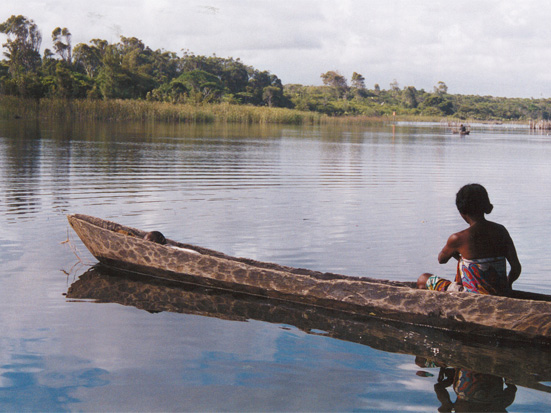Increasing women’s participation in community-based conservation: key to success?
Abstract
...References
Agarwal, B. 2009. Gender and forest conservation: The impact of women’s participation in community forest governance. Ecological Economics 68, 11: 2785–2799. (doi:10.1016/j.ecolecon.2009.04.025)
Chao, S. 2012. Forest peoples: numbers across the world. Forest Peoples Programme. Available at http://ow.ly/Q1xm3
Dolch, R., Ndriamiary, J. N., Ratolojanahary, T., Randrianasolo, M. and Ramanantenasoa, I. A. 2015. Improving livelihoods, training para-ecologists, enthralling children: Earning trust for effective community-based biodiversity conservation in Andasibe, eastern Madagascar. Madagascar Conservation & Development 10, 1S: 21–28. (doi:10.4314/mcd.v10i1.S4)
Economist Intelligence Unit. 2012. Women’s Economic Opportunity Index. Economist Intelligence Unit. https://www.eiu.com/public/topical_report.aspx?campaignid=weoindex2012
Index Mundi. 2014. Madagascar demographics profile 2014. http://www.indexmundi.com/madagascar/demographics_profile.html.
Järvilehto, L. 2006. Men and women of the forest: Livelihood strategies and conservation from a gender perspective in Ranomafana National Park, Madagascar. Masters, University of Helinski. http://ethesis.helsinki.fi/julkaisut/bio/bioja/pg/jarvilehto/menandwo.pdf
Lowassa, A., Tadie, D. and Fischer, A. 2012. On the role of women in bushmeat hunting–Insights from Tanzania and Ethiopia. Journal of Rural Studies 28, 4: 622–630. (doi:10.1016/j.jrurstud.2012.06.002)
Nature Conservancy. 2015. Empowering women in conservation projects. http://www.nature.org/science-in-action/leading-with-science/empowering-women-in-conservation-projects.xml
Otzelberger, A. 2011. Gender-Responsive Strategies on Climate Change: Recent Progress and Ways Forward for Donors. Institute of Development Studies and BRIDGE. Available at http://ow.ly/Q1vIA
Robson, L. and Rakotozafy, F. 2015. The freedom to choose: integrating community-based reproductive health services with locally led marine conservation initiatives in southwest Madagascar. Madagascar Conservation & Development 10, 1S: 6–12. (doi:10.4314/mcd.v10i1.s2)
UNEP. 2010. Decision adopted by the conference of parties to the convention on biological diversity at its tenth meeting: Gender mainstreaming. UNEP/CBD/COP/DEC/X/19 . https://www.cbd.int/doc/decisions/cop-10/cop-10-dec-19-en.pdf
UNEP. 2014. Decision adopted by the conference of parties to the convention on biological diversity at its tenth meeting: Mainstreaming gender considerations. UNEP/CBD/COP/DEC/XII/7. https://www.cbd.int/doc/decisions/cop-12/cop-12-dec-07-en.pdf
Wan, M., Colfer, C. J. P. and Powell, B. 2011. Forests, women and health: opportunities and challenges for conservation. International Forestry Review 13, 3: 369–387. (doi:10.1505/146554811798293854)
Westerman, K. and Benbow, S. 2014. The role of women in community-based small-scale fisheries management: the case of the southern Madagascar octopus fishery. Western Indian Ocean Journal of Marine Science 12, 2: 119–132. Available at http://ow.ly/Q1wuM
Widman, M. 2014. Land tenure insecurity and formalizing land rights in Madagascar: A gender perspective on the certification program. Feminist Economics 20, 1: 130–154. (doi:10.1080/13545701.2013.873136)

Downloads
Published
Issue
Section
License
All journal content, except where otherwise noted, is licensed under a creative common Attribution 4.0 International and is published here by the Indian Ocean e-Ink under license from the author(s).


